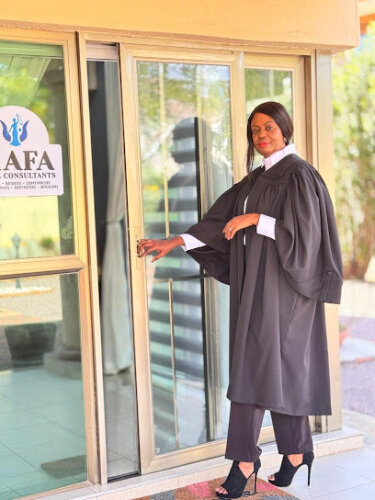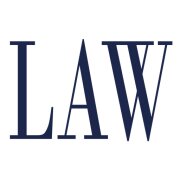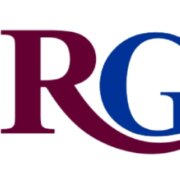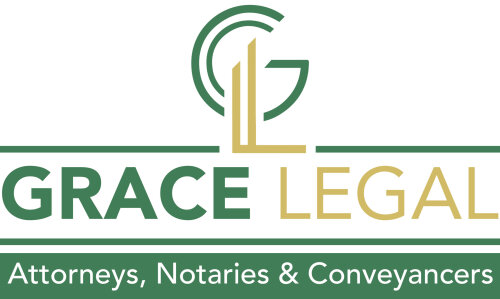Best Foreclosure Lawyers in Gaborone
Share your needs with us, get contacted by law firms.
Free. Takes 2 min.
Free Guide to Hiring a Real Estate Lawyer
List of the best lawyers in Gaborone, Botswana
About Foreclosure Law in Gaborone, Botswana
Foreclosure in Gaborone, Botswana, refers to the legal process through which a lender attempts to recover the balance of a loan from a borrower who has stopped making payments. This is typically done by forcing the sale of the asset used as the collateral for the loan. Foreclosure laws are designed to ensure that the process is conducted fairly and legally for all parties involved. Gaborone, as the capital city of Botswana, has a structured legal system with specific statutes governing foreclosure to protect both lenders and borrowers.
Why You May Need a Lawyer
Engaging a lawyer can be crucial in several foreclosure-related situations, including:
- Preventing Foreclosure: If you are at risk of foreclosure, a lawyer can help negotiate with lenders to modify the loan or find alternative solutions.
- Defending Against Foreclosure: A borrower may need legal defenses against improper foreclosure procedures or lender misconduct.
- Navigating Complex Procedures: Foreclosure laws and proceedings can be complicated, and legal assistance can ensure correct adherence to all requirements.
- Purchasing Foreclosed Properties: Buyers of foreclosed properties require legal advice to navigate potential complications and ensure lawful transactions.
- Litigation: When disputes regarding foreclosure arise, legal representation can be critical in court or in mediation.
Local Laws Overview
Key aspects of foreclosure laws in Gaborone, Botswana, include:
- Notice Requirements: Lenders must provide appropriate notice to borrowers before initiating foreclosure proceedings.
- Right to Cure: Laws often provide a period during which the borrower can repay the overdue amount to prevent foreclosure.
- Judicial Foreclosure: In Botswana, foreclosure typically requires court involvement to ensure compliance with legal standards.
- Redemption Periods: Borrowers may have the right to redeem the property by paying off the full debt before the sale is finalized.
- Sale Procedures: Foreclosed properties are usually sold through public auctions, and the process is strictly regulated to ensure fairness.
Frequently Asked Questions
What is the first step in foreclosure proceedings in Gaborone, Botswana?
The lender must send a formal notice of default to the borrower, detailing the amount owed and the steps required to remedy the default.
Can I stop a foreclosure once it has started?
Yes, borrowers have the right to stop foreclosure by paying the overdue amount or negotiating a new agreement with the lender. Legal assistance can be critical in these negotiations.
How long does the foreclosure process take in Gaborone?
The foreclosure process timeline varies depending on court schedules, lender practices, and borrower responses. It can take several months to more than a year.
What happens to my property if it is foreclosed?
If your property is foreclosed, it will be sold through a public auction, and the proceeds will be used to repay the outstanding loan. Any surplus funds may be returned to you.
Can I still live in my home during the foreclosure process?
Yes, borrowers are generally allowed to stay in their homes until the foreclosure process is completed and the property is sold through an auction.
What should I do if I receive a foreclosure notice?
Contact a foreclosure attorney immediately to understand your options, such as loan modification, repayment plans, or defense strategies.
Am I liable for the remaining debt if the foreclosure sale does not cover my loan amount?
In some cases, you may still owe a deficiency balance if the sale proceeds do not cover the entire loan. Legal advice can help manage this liability.
What can I do if my lender is not cooperating?
If your lender is unresponsive or acting unethically, a foreclosure attorney can assist in filing complaints and pursuing legal action if necessary.
Are there alternatives to foreclosure?
Yes, alternatives include loan modification, forbearance, short sale, deed in lieu of foreclosure, and others. An attorney can help identify the best option.
Can foreclosure affect my credit score?
Yes, foreclosure can significantly impact your credit score, making it harder to obtain loans in the future. It’s essential to explore all options to avoid foreclosure.
Additional Resources
Several organizations and governmental bodies can provide assistance and information on foreclosure:
- Botswana Housing Corporation (BHC): Offers information on housing policies and foreclosure procedures.
- Ministry of Lands and Housing: Provides regulations and guidelines related to property and housing.
- Botswana Law Society: Can help you find a qualified attorney specializing in foreclosure.
- Bank of Botswana: Offers insights into banking regulations and practices, including foreclosure.
Next Steps
If you are facing foreclosure or need legal assistance, consider the following steps:
- Consult a Lawyer: Find an attorney specializing in foreclosure law in Gaborone. The Botswana Law Society can assist in locating qualified lawyers.
- Understand Your Rights: Educate yourself about your rights and obligations under local foreclosure laws.
- Explore Options: Work with your lawyer to explore all available options, such as loan modification, negotiation, or litigation.
- Act Promptly: Foreclosure processes are time-sensitive, so act quickly to ensure you have the best chance to remedy the situation.
- Stay Informed: Keep up with any changes in local laws and regulations that may affect your case.
Lawzana helps you find the best lawyers and law firms in Gaborone through a curated and pre-screened list of qualified legal professionals. Our platform offers rankings and detailed profiles of attorneys and law firms, allowing you to compare based on practice areas, including Foreclosure, experience, and client feedback.
Each profile includes a description of the firm's areas of practice, client reviews, team members and partners, year of establishment, spoken languages, office locations, contact information, social media presence, and any published articles or resources. Most firms on our platform speak English and are experienced in both local and international legal matters.
Get a quote from top-rated law firms in Gaborone, Botswana — quickly, securely, and without unnecessary hassle.
Disclaimer:
The information provided on this page is for general informational purposes only and does not constitute legal advice. While we strive to ensure the accuracy and relevance of the content, legal information may change over time, and interpretations of the law can vary. You should always consult with a qualified legal professional for advice specific to your situation.
We disclaim all liability for actions taken or not taken based on the content of this page. If you believe any information is incorrect or outdated, please contact us, and we will review and update it where appropriate.

















